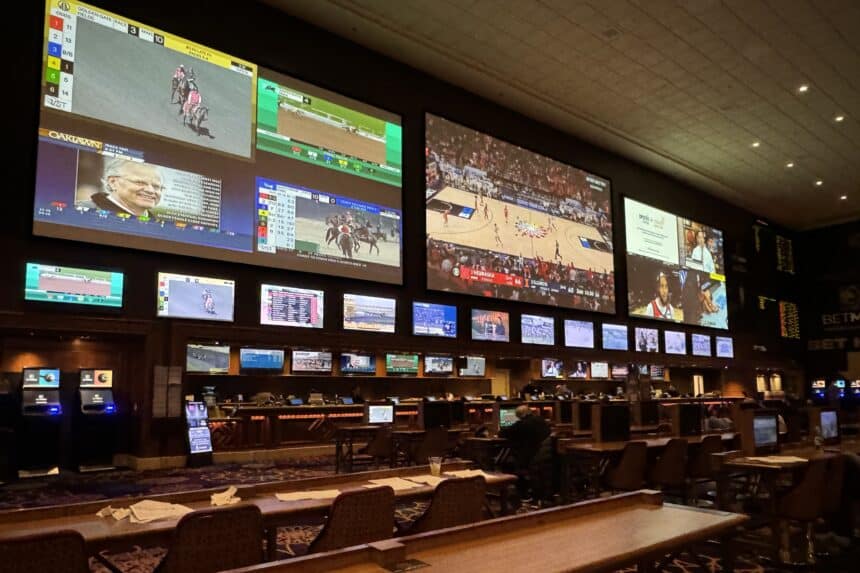Basketball has shed its image as that American sport you catch during insomnia bouts. Courts across Britain now hum with activity while NBA games draw massive television audiences. Young Brits debate LeBron James versus Michael Jordan with the same fervor their parents reserve for Manchester United versus Liverpool. This shift runs deeper than sports trends, reflecting how British culture embraces global entertainment and diverse athletic experiences.
The NBA Breaks Through British Screens
Sky Sports numbers tell a remarkable story. NBA viewership jumped 40% since 2019, with viewers under 30 driving the most growth. Social media changed everything here. Instagram and TikTok pump out basketball clips nonstop—those jaw-dropping dunks and last-second shots grab attention like nothing else. British fans get hooked on individual players, memorizing their stats and following trades like they manage fantasy teams. Nobody saw this coming five years ago.
Netflix cracked basketball wide open for British audiences. “The Last Dance” brought Michael Jordan’s whole story to people who barely knew his name. Those episodes showed championship costs—broken relationships, obsessive training, and ruthless competition. British viewers ate it up because they love complex characters wrestling with demons. Basketball suddenly offered drama that football sometimes lacks, complete with larger-than-life personalities and genuine stakes.
Courts Come Alive Across Britain
Local basketball courts witness unprecedented activity. Basketball England reports that youth participation among 14-to-25-year-olds shot up 65% since 2018. Schools that once offered only football and rugby now teach basketball fundamentals. Urban areas lead this charge, but smaller towns follow quickly as word spreads about the sport’s appeal. Kids who felt left out of traditional British sports find their place on basketball courts.
Community programs deserve massive credit for this growth explosion. Midnight Basketball creates safe spaces where young people combine sport with mentorship. These programs work exceptionally well in diverse communities where basketball’s inclusive culture clicks immediately. The sport removes traditional barriers—you need a ball and a decent surface, nothing more. This accessibility opens doors for families who couldn’t afford rugby equipment or cricket club fees.
Media Attention Shifts Everything
British sports coverage expanded dramatically beyond traditional offerings. BBC Sport now runs regular NBA features while specialized podcasts build devoted followings. Radio hosts who once ignored American sports entirely now discuss playoff brackets and draft prospects. This coverage creates legitimacy, transforming basketball from a foreign curiosity into an accepted entertainment choice. Media attention signals that basketball belongs in British sporting conversation.
British celebrities started showing up courtside, and their fans took notice. Skepta posts Lakers game photos that get hundreds of thousands of likes. AJ Tracey rocks Warriors jerseys in music videos, making basketball gear fashionable overnight. These aren’t paid endorsements—these artists genuinely love the culture surrounding basketball. Their involvement bridges the gap between American sport and British youth culture in ways traditional marketing never could.
Money Follows the Action
Basketball’s growing popularity quickly attracts commercial attention. With the rise in popularity, even more UK betting apps promote NBA games and detailed player statistics, recognizing that younger punters prefer basketball’s constant action over slower-paced sports. Bookmakers like William Hill and Bet365 have expanded their basketball offerings massively, covering everything from game-winners to obscure statistical bets.
Companies chase basketball’s young demographic aggressively. Red Bull sponsors highlight reels, Nike partners with British streetball leagues, and streaming services bid for documentary rights. Each investment generates more visibility, pulling in fresh fans who attract additional sponsors. Betting shops particularly benefit because basketball offers endless wagering opportunities—every possession creates new odds, and every player stat becomes a potential bet.
Schools Embrace the Orange Ball
Educational institutions drive much of basketball’s grassroots expansion. Teachers notice students who struggle with football or rugby often excel at basketball, finding confidence through improved coordination and teamwork development. The sport emphasizes individual skill within team success, appealing to young people who want personal achievement alongside group accomplishment. Secondary schools increasingly offer basketball as primary physical education rather than the occasional alternative.
University programs expand rapidly across British campuses. British universities recruit internationally, bringing talented players who raise competition levels while inspiring local participation. Student enthusiasm creates lasting effects—graduates maintain basketball interest throughout their careers, supporting professional leagues and continuing recreational play. University basketball culture spreads through social media, with team highlights and player personalities building audiences beyond campus boundaries.
Professional Prospects Look Bright
The British Basketball League benefits from NBA popularity, which creates demand for local professional content. Attendance remains modest compared to football, but television viewership grows steadily each season. Investors recognize basketball’s potential trajectory, particularly given demographic trends favoring global entertainment among younger audiences. Several groups explore expansion opportunities as commercial interest increases.
NBA development programs strengthen British basketball infrastructure through direct involvement. Training camps in London identify local talent while promoting broader participation. Young British players now see basketball as a genuine career option rather than an impossible fantasy. Joel Embiid represents Cameroon internationally but grew up in Britain, while OG Anunoby’s Nigerian heritage connects with British diversity. Each success story proves basketball careers aren’t just American dreams anymore.
Conclusion
Basketball’s British transformation reflects how modern audiences consume global entertainment without geographical limitations. Young Brits choose sports that match their values and interests rather than accepting traditional options by default. The NBA’s entertainment value combines basketball’s accessibility to create sustainable growth foundations beyond temporary fascination.
Commercial expansion and increased participation position basketball as a permanent British sporting fixture rather than a passing trend. This evolution demonstrates how sports transcend borders by connecting authentically with local audiences through compelling personalities, accessible participation, and cultural relevance. Basketball found its British audience by offering something different, and that audience continues growing every season.





